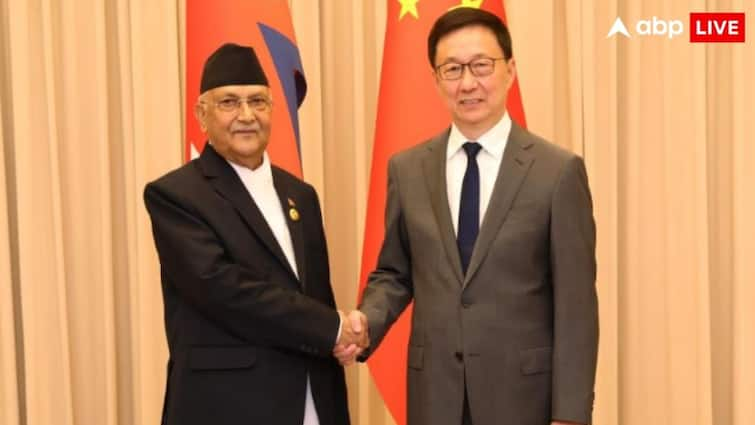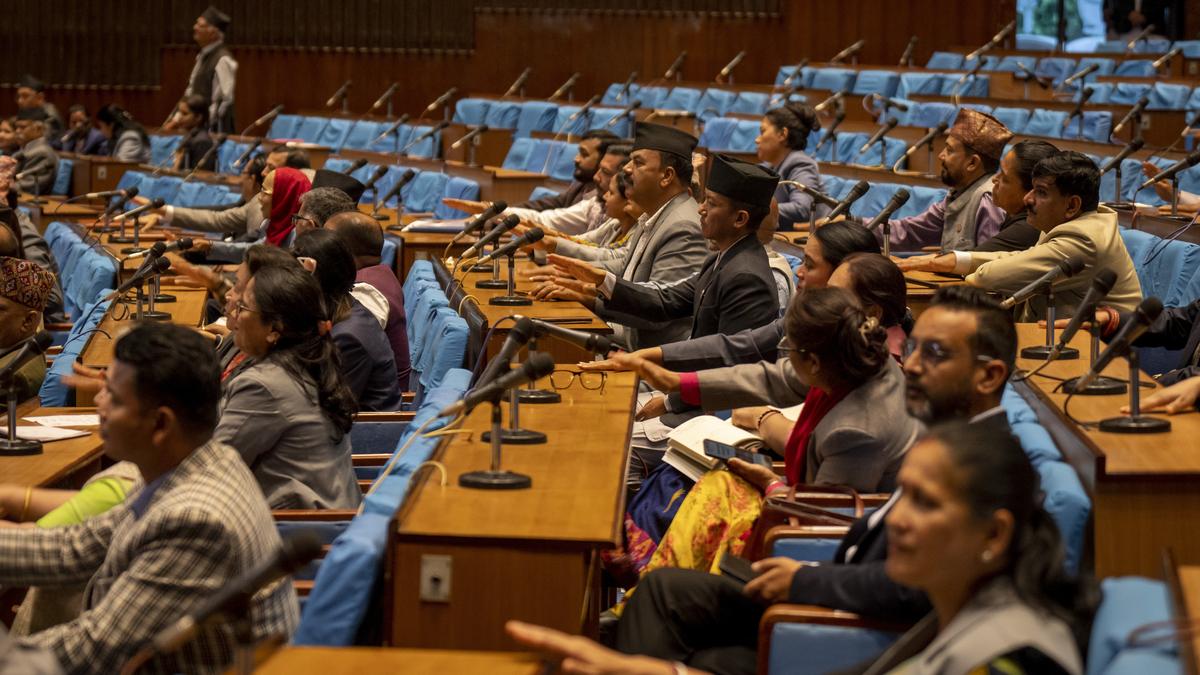- May 24, 2023
In Nepal, a fledgling political outfit gives traditional parties a run for their money

When Swarnim Wagle, an economist and former vice-chairman of Nepal’s National Planning Commission, announced on March 30 that he was quitting the Nepali Congress, it came as a bombshell for many political watchers. Mr. Wagle once declared that he could not imagine being in a party other than the Nepali Congress, with which his three generations had had an allegiance.
Many saw his move as his grudge against the Nepali Congress high command for denying him a ticket to contest the November general elections. He swiftly joined the Rastriya Swatantra Party (RSP), a new political force that was born just five months before the November polls. He contested the by-elections from Tanahun-1, a constituency that had fallen vacant after Ram Chandra Poudel, a Nepali Congress leader who had won the November elections, was elected the new President of Nepal.
Though a newbie in politics, Mr. Wagle, who also served as the Chief Economic Adviser at the UNDP Regional Bureau for Asia and Pacific in New York between 2020 and 2022, registered a resounding victory, garnering three times more votes than his closest rival backed by the ruling coalition. While Mr. Wagle did have his expertise to project before the electorate, it was the charm of the RSP that worked more in his favour, say political commentators. The RSP, which had won 21 seats in the 275-member Parliament in November, now has 22 seats and is the fourth largest party.
All is not well
The way the RSP has emerged in Nepal’s politics is going to give the country’s traditional political parties a run for their money, analysts say. “The RSP certainly has become a force to reckon with,” said Hari Sharma, a political commentator and writer. “Its rise poses a critical question that all is not well in Nepal’s political system. Its emergence has exposed the political contradictions in Nepal.”
Ever since the restoration of democracy in Nepal in 1990, the Nepali Congress and the Communist Party of Nepal (Unified Marxist-Leninist), or CPN-UML, have been the major political forces. After the end of the decade-long insurgency in 2006, the Maoists became another powerful player. But over the years, there has been a growing resentment among the general public towards the established parties’ failure to deliver amid a slew of allegations of corruption and irregularities.
“People wanted to vent their frustration out. They chose the RSP,” said Mr. Sharma. “How it can change the Nepali political landscape is yet to be seen, but it has definitely made a forceful entry; a promising start.”
Days after the by-elections, the RSP withdrew its support for the Pushpa Kamal Dahal ‘Prachanda’ government, leaving many, including legal experts, scratching their heads if the Prime Minister needs to go for a floor test once again — for a third time since he was elected on December 25.
In the 275-strong hung Parliament, the RSP, with 22 lawmakers, has a strong presence. Its rise, however, holds much more significance in Nepal’s polity than just making and unmaking of governments.
Warning to traditional parties
“As I have said even in public forums that the RSP’s emergence is a warning to traditional parties in Nepal, even if its rise is attributed to public frustration,” said Minendra Rijal, a former Minister and central member of the Nepali Congress party.
The RSP was founded on June 21, 2022 by Rabi Lamichhane, a journalist who earned an immense fan following through his television show in which he would call out politicians and expose social and political ills. Not everyone agreed with his style of journalism, but he managed to carve a niche for himself. When he jumped into politics, he said his party’s sole goal would be to fight against corruption. It struck a chord with the electorate.
An array of people from diverse backgrounds joined in — from medical doctors to educators and academicians to scientists. But still, the RSP has yet to make a name for itself as a political outfit, as many still recognise it as ‘Rabi’s party’— or just as “the bell”, the party’s election symbol.
And that’s where the problem may stem from.
“It has a long way to go before the RSP evolves as a political party in true sense. Some still consider it a mere bunch of opportunists,” said Mr. Sharma, the analyst. “Though the RSP has proved to be a major disruptor and it holds the potential to upend the status quo, we have to wait before we hand out a report card.”
Mr. Lamichhane, the RSP founder whose lawmaker post was invalidated by the Supreme Court over charges that he held American citizenship without renouncing his Nepali citizenship, contested the April 23 by-elections from the same constituency he had won in November — Chitwan-2. He defeated his rivals of major parties hands down.
The party, however, faces criticism over some issues — its ideological footing and views on issues like federalism, secularism and foreign policy are nebulous.
Paradigm shift
But Mr. Wagle calls such detractors “slaves of their thoughts”.
“Our party wholeheartedly embraces the Constitution and pledges to move forward by following the directive principles laid down by the Constitution,” he said. “We believe in liberal democracy; our goal is social justice, fighting corruption, ensuring economic growth, and generating employment.” He claimed the RSP’s rise has led to a paradigm shift in Nepali politics.
Corruption and mis-governance have been the bane of Nepal, and ridding the country of the mess has been the RSP’s major selling point, but some wonder if its chairman himself is the Achilles’ heel of the party. A case against him for holding dual passports, a criminal offence in Nepal, is currently pending in the Supreme Court. Mr. Wagle, however, says there is no need to speculate as his party believes in the law of the land. “Law will take its course; we will abide by whatever decision comes,” he said.
The RSP which primarily seeks to mobilise people on an an anti-corruption platform is now seeing more opportunities to expand its base, as a spate of arrests lately, including of a former Home Minister from the Nepali Congress, has exposed a political-bureaucratic nexus that was involved in a scam to send Nepalis to the U.S. by forging their documents as refugees from Bhutan.
‘A movement in making’
Mr. Wagle says Nepali people are disenchanted with corruption, extractive politics and grand larceny by old parties. “We have proved that we can deliver by our work even though we were part of the government only for a few weeks,” he said.
Both Mr. Rijal, the former Minister from the Nepali Congress, and Mr. Sharma do not hesitate to hail the RSP’s success, but they appear to be cautiously optimistic about the exact impact it can make on Nepal’s political landscape.
“The RSP has shown the possibility of change,” said Mr. Sharma. “The party has a heterogeneous group of competent people. If they maintain coherence and put their act together, it can evolve as an institution, a political party.”
Mr. Wagle, meanwhile, oozes confidence, describing the RSP as a movement in making. “Come next elections, we will emerge as a major political force.”
Sanjeev Satgainya is an independent journalist based in Kathmandu.







